Local elections 2018: What can't you do in a polling station?
- Published
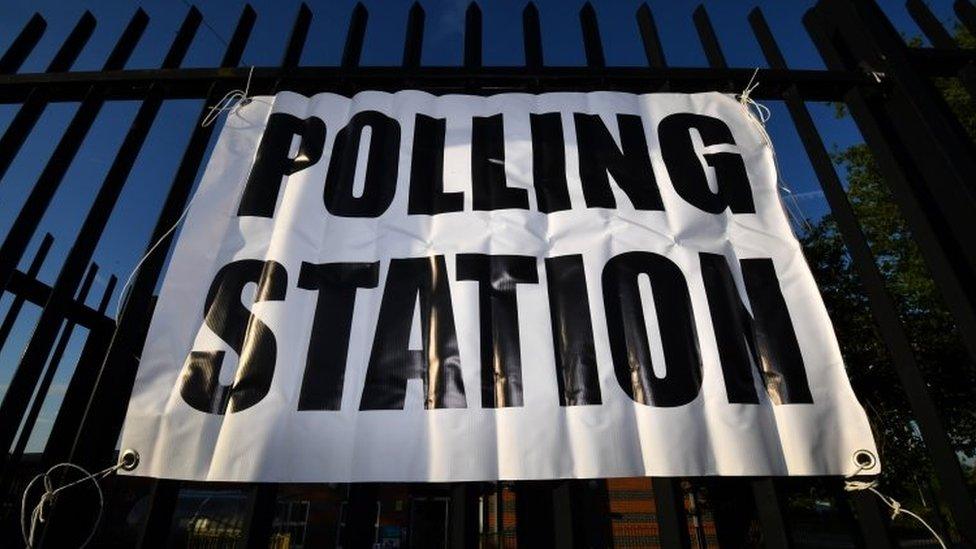
People are heading to polling stations across England to cast their vote in local elections. But what can and can't you do in there?
Most British people are familiar with what goes on inside a polling station. You march in, possibly brandishing your polling card, you give your name and address, someone finds you on a list and gives you a ballot paper.
You then head off to a booth to use your stubby pencil to mark your X.
Can you take a selfie?
There's nothing in the law that specifically bans taking photos, but the Electoral Commission very strongly discourages any photography inside a polling station, primarily because of complex laws about maintaining the secrecy of the ballot.
For instance, it's illegal to reveal how someone else has voted, which could happen inadvertently via a sloppy selfie.
In addition, taking a photo of a ballot paper's unique identification number is against the rules.
The key is a law against releasing any information "obtained in a polling station", which is in order to protect the integrity of the poll.
The Electoral Commission says: "Due to the potential breach of the law, intentionally or not, we strongly advise against any form of photography taken inside a polling station.
"However, if a voter would like to highlight their participation in the elections, we suggest this is done outside the polling station before or after they vote."
Consequently, you will see "no photography" signs inside many polling stations.
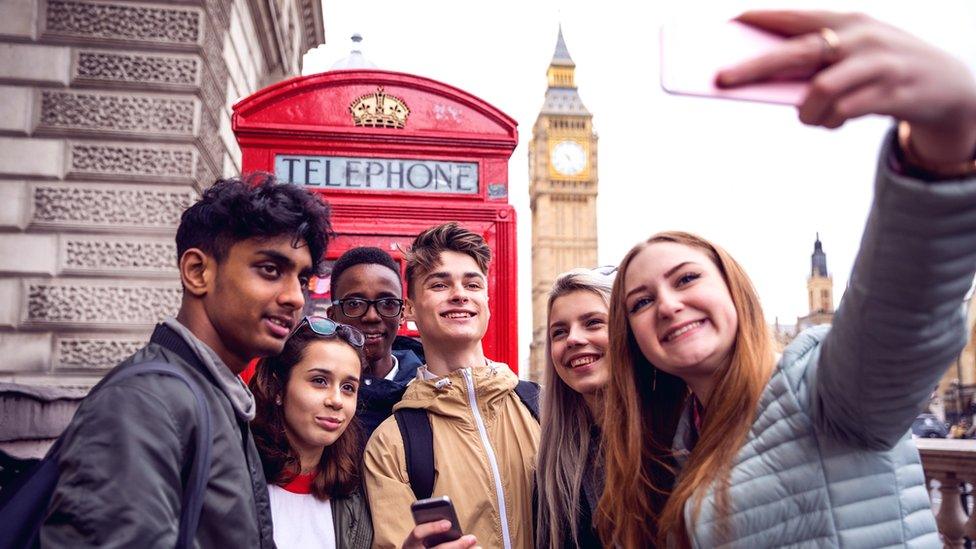
There are strict penalties for breaches of the law. At the European elections in 2014, people were warned that they could face a fine of £5,000 or six months in prison if they revealed how someone else voted, even accidentally.
In practice, election staff might ask anyone taking a picture to delete it rather than go straight to the police. "It would depend on exactly what they were taking a photograph of," one electoral services manager says.
Pop star Justin Timberlake landed himself in hot water when he posted a picture on Instagram of himself voting in the US election in Memphis, Tennessee - where it is illegal to take photos inside polling locations. But the authorities decided not to take any action.
Can you tweet about voting?
The Electoral Commission warns against doing it inside the polling station, even if it's about your own vote.
Elsewhere you are free to publicise your vote. However, as above, there are strict laws against revealing someone else's vote, including influencing whether they publish it themselves.
Under Section 66 of the Representation of the People Act 1983 it is a criminal offence to communicate information about the way someone has voted or is about to vote - and specifically to "directly or indirectly induce a voter to display his ballot paper after he has marked it so as to make known to any person the name of the candidate for whom he has or has not voted".
Can you bring a pet?
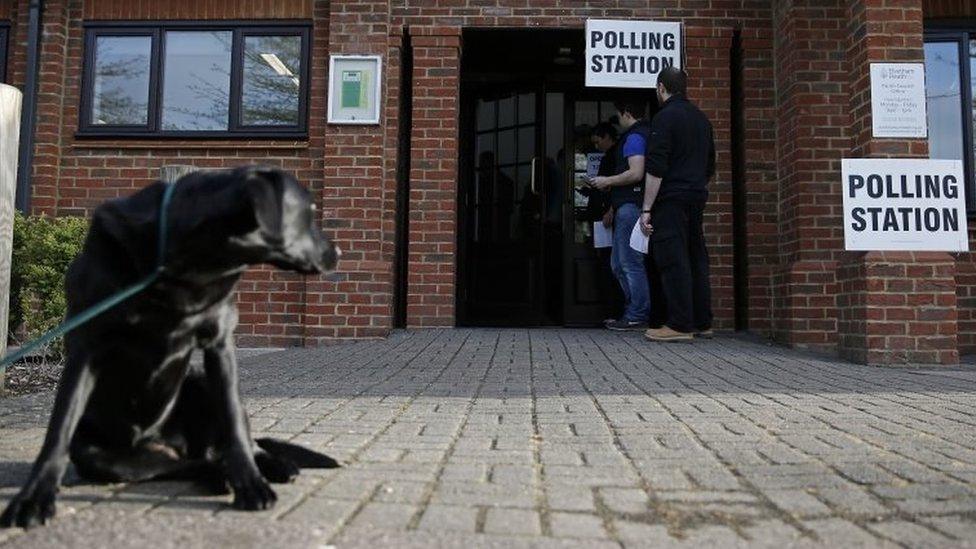
Dogs may not be entitled to vote but they are allowed to come and watch - as long as they don't disrupt the vote.
In cases where a voter has two or more dogs, and will struggle to control them while casting their ballot, polling station staff may be able to hold the dogs' leads.
But the Electoral Commission advises that while voters are welcome to bring their dogs, they may have to be left outside, unless they're an assistance dog.
In recent elections, voters have tweeted pictures of their dogs under the hashtag #DogsAtPollingStations.
Rural constituencies might have cases of voters riding to the polling station. In such instances, horses and ponies should be tethered up outside.
There is no guidance on other animals such as rabbits, ferrets or pot-bellied pigs, so any decision will be at the discretion of presiding officers.
Can you wear political clothing?
People shouldn't wear party political clothing.
Voters dressed in party T-shirts will not be able to enter the polling station as it may be intimidating. Political figures in the wider sense may be fine - for instance a T-shirt of Che Guevara would be acceptable.
The onus is on encouraging people to vote.
Can I cover my face with a hoodie or something else?
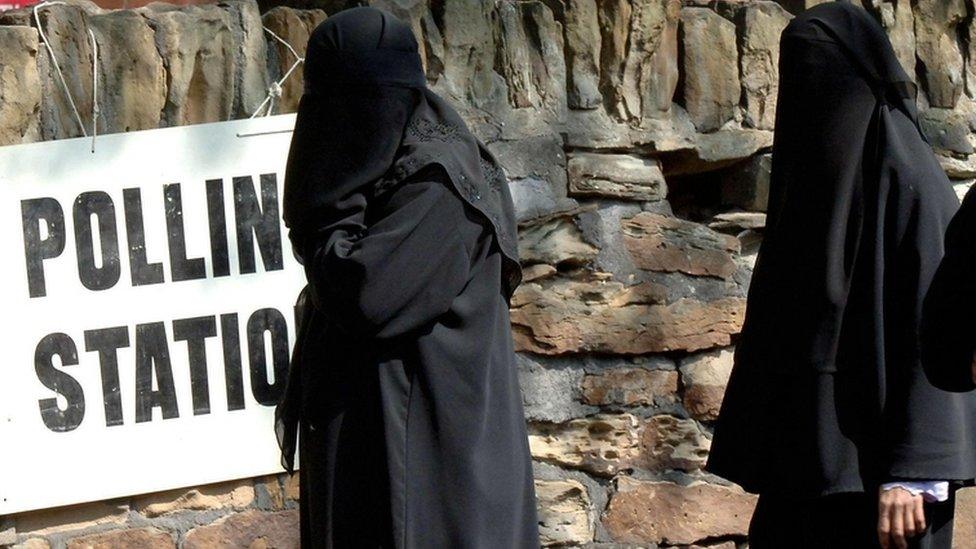
Yes. It's true that polling station staff are on the lookout for people trying to vote twice by impersonating someone else on the register. But there's no requirement for voters to show their face.
Can I vote if I've been drinking?
Yes. Polling station staff cannot refuse a voter simply because they are drunk or under the influence of drugs. Only if the voter is disruptive will they be asked to return when they have sobered up.
Can I wear a giant rosette?
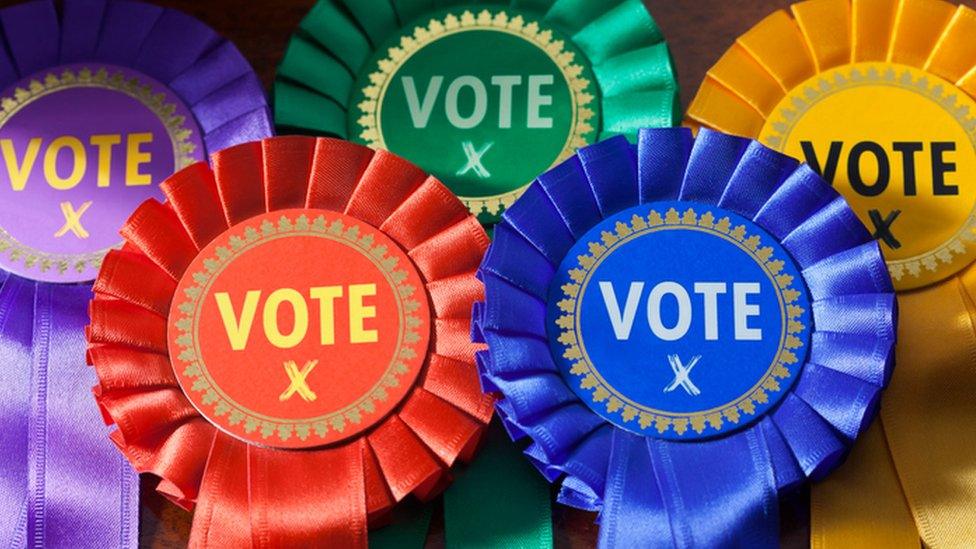
No. The only people permitted to wear a rosette are the candidates and their polling agents. The rosette must be plain and not refer to the candidate or bear a slogan.
Can I discuss the candidates with my partner?
No. Political discussion is banned inside the polling station. Polling station staff will intervene if people are heard to be discussing the merits of different candidates or parties - it may unsettle other voters.
Neither can one ask someone whom they are voting for as this will compromise the secrecy of the poll. If you want to debate the pros and cons of a certain candidate you must do so outside.
Neither can people distribute party leaflets or other literature in the polling station. Anyone seen doing so will be asked to take them outside.
Can members of the Royal Family vote?
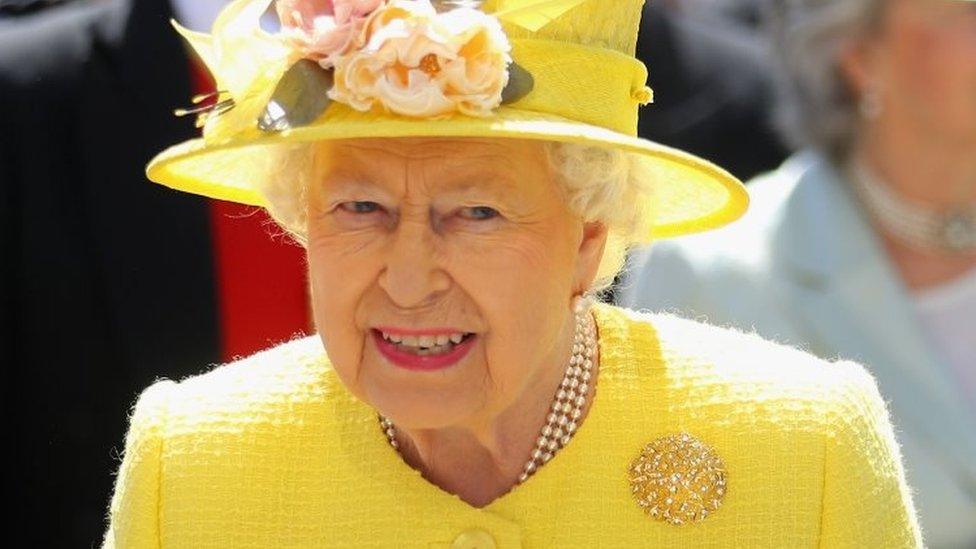
Technically even the Queen could vote. But she "has to remain strictly neutral with respect to political matters" and is "unable to vote or stand for election", according to the official website of the monarchy, external.
Can I play music?
Only if it doesn't disrupt other people. If you are listening to music on headphones you'll need to remove them when being addressed by polling station staff. They will want to confirm your name and other details.
If your personal music player is playing at high volume in the polling booth you'll be asked to turn it down or leave. The same goes for loud mobile phone conversations.
Do I have to mark my cross with a pencil on a string?
No, if you prefer you can use a pen, even if it's your own. While a cross is usually called for, you could theoretically mark the box with a tick instead. The important thing is that your voting intention is clear.
I've made a mistake and voted for the wrong person. Can I vote again?
Yes, providing you haven't already posted your ballot paper in the box. Return to the desk and tell staff what has happened. They'll be able to cancel your ballot paper and issue you with a new one.
I'm nervous. Can a friend come and help me?
You're welcome to enter the polling station with a friend if they are also eligible to vote there. But voting is a private matter so you must be alone when you go into the polling booth.
If the friend is not registered to vote there then they will not be allowed inside the polling station. If you have a disability, or are unable to read the ballot, and cannot vote on your own, you may come with a companion. The presiding officer can also help.
Can I put a smiley face instead?
The Electoral Commission says the best way to make sure your vote is counted is to mark an X in a box. But a smiley face or anything which is interpreted by a returning officer as an expression of preference "must not be rejected if the voter's intention is clear", its guidance to Returning Officers says.
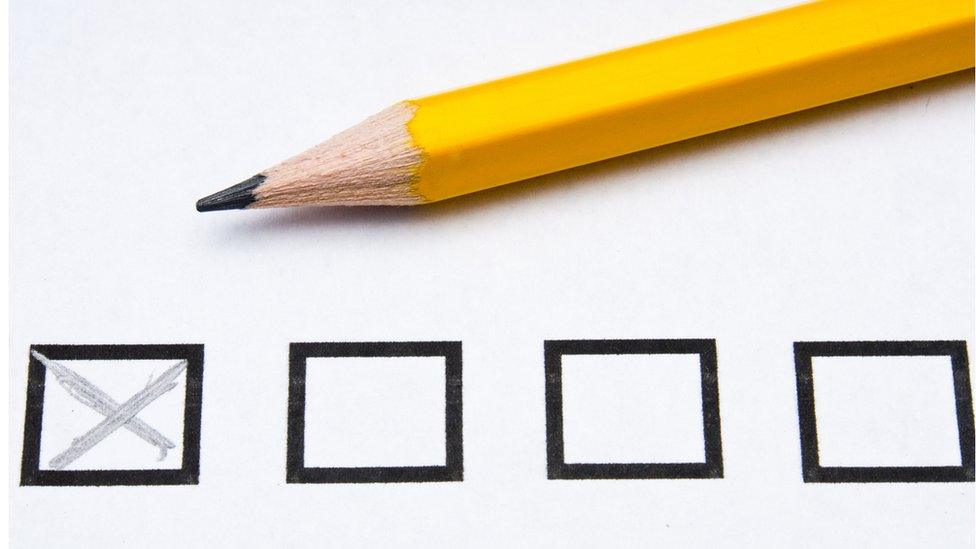
Can I bring my children to show them how it works?
Of course. Polling station staff are expected to be welcoming to under-18s so as not to put off the voters of tomorrow.
In exceptional cases, where there are large numbers of young people in the station, presiding officers have the power to ask them to wait outside.
If someone has several young children, a member of the polling station staff can look after them while the parent or guardian votes.
Can my child mark the X for me?
A child is not allowed to write the X for an adult.
Can I write a message to the politicians?
You can but it may mean your vote won't be counted.
There's a tradition of deliberately spoiling your ballot. "None of the above" is one of the more polite ways of showing you are not apathetic, just contemptuous of the candidates on offer. These votes are included in the overall turnout.
However, if you wish to vote for a candidate you should avoid writing comments in the margin. It might confuse the counters and lead to your vote being deemed doubtful and subsequently rejected.
Can I sign my ballot paper?
People do occasionally sign their ballots. If the name is identifiable your vote will not count. They are considered rejected ballots because the voter has revealed their identity and breached the rules of a secret ballot.
Signing your ballot paper was fairly common in the 19th Century when candidates would pay people to vote for them. Under that system it was possible for the candidate to check up later who had voted for them by looking for signatures, and pay out accordingly.
Today, however innocent the motive, a signature renders a ballot "rejected".
This is an update on an article written for the 2015 election